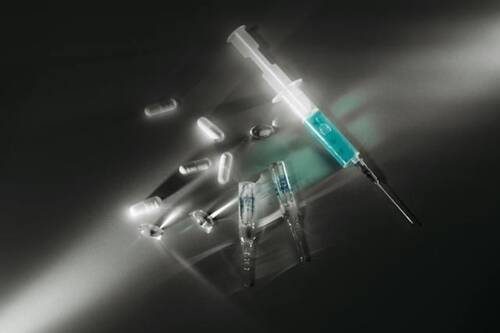
10 Oct Breaking Free from Steroid Addiction: 6 Things to Keep in Mind
Breaking Free from Steroid Addiction: 6 Things to Keep in Mind
Steroid addiction is a real challenge, especially in the fitness world, where the pressure to excel can be intense. It’s not only about the physical dependency. It’s also about the mental battle to let go of something you may think is essential for success. But here’s the thing: breaking free from steroid addiction is crucial for your long-term health and well-being. Whether you’re a gym enthusiast, a professional athlete, or someone who started using steroids as supplements to your workouts, it’s important to recognize the need to step back and choose a healthier path. This article aims to guide you through six key things to remember as you embark on this journey of recovery and rediscovery.
1. Understanding Steroid Addiction
Steroid addiction, often unnoticed in the beginning, can gradually become a significant problem for those striving for physical perfection or performance enhancement. Understanding this addiction is the first step towards overcoming it.
What Is Steroid Addiction?
Steroid addiction, as Little Creek Recovery elucidates, occurs when individuals become dependent on anabolic steroids, substances commonly used to enhance muscle growth and athletic performance. Initially, these steroids might be seen as a quick way to bulk up, but over time, the body starts craving them, leading to dependency.
Why It Happens
The root of steroid addiction often lies in the desire for improved physical appearance or athletic ability. The pressure to maintain a certain physique, especially prevalent in gym culture, can push individuals towards steroids. In addition, the initial results from steroid use can be enticing, making it harder to stop as the body starts adapting to these artificial enhancements.
Physical and Psychological Impacts
Physically, prolonged steroid use can lead to serious health issues like liver damage, hormonal imbalances, and increased risk of heart disease. Psychologically, it can trigger mood swings, aggression, and depression. Importantly, as the body gets used to steroids, it might reduce its natural ability to produce certain hormones, leading to long-term health complications.

Breaking free from steroid addiction starts with acknowledging the reasons you started using steroids in the first place. Image Source
1. Recognizing the Need for Change
Realizing that you need to change your relationship with steroids is an important moment in your journey toward a healthier lifestyle. This recognition is crucial, especially for those deeply involved in strength training and fitness, where steroid use might be more common, as well as for those who are using supplements to boost their testosterone levels.
Acknowledging the Problem
The first step in breaking free from steroid addiction is admitting that there’s a problem. It’s easy to dismiss steroid use as just a part of your strength training regime, but acknowledging its negative impact on your health and life is essential. This realization often comes when you notice that your steroid use is no longer just about enhancing your workout results but has become a necessity for you to feel normal.
Signs It’s Time to Seek Help
There are several red flags indicating it’s time to reconsider your steroid use. These include:
- Increased reliance on steroids to achieve results in strength training.
- Experiencing withdrawal symptoms like fatigue, mood swings, or depression when not using steroids.
- Neglecting responsibilities or relationships due to preoccupation with steroid use and training.
- Physical side effects like rapid weight gain, acne, or unusual hair growth/loss.
- Feeling trapped in a cycle of using steroids despite wanting to stop.
2. Creating a Supportive Environment
Creating a supportive environment is a critical component in overcoming steroid addiction. As you navigate this challenging journey, surrounding yourself with the right people and resources can make a significant difference in your recovery.
Lean on Family and Friends
Your family and friends can provide emotional support and understanding, which is invaluable. Open up to them about your struggles and goals. Their encouragement and accountability can help you stay on track, especially on tough days. It’s essential to communicate your needs clearly and let them know how they can best support you.
Seeking Professional Help
Professional guidance is crucial when breaking free from steroid addiction. A therapist or counselor specializing in addiction can offer strategies to cope with withdrawal symptoms and emotional challenges. They can also help you understand the root causes of your addiction and guide you toward sustainable recovery methods.
Join Support Groups
Support groups, both in-person and online, can provide comfort and motivation. Connecting with others who are going through similar experiences allows you to share tips, challenges, and successes. These groups provide a sense of community and understanding you might not find elsewhere. Knowing you’re not alone in this can be a powerful motivator.

With the right support, your journey becomes easier. Image Source
1. Breaking Free from Steroid Addiction: Developing a Recovery Plan
Developing a recovery plan is a vital step in breaking free from steroid addiction. This plan serves as your roadmap, guiding you through the complexities of recovery with clear, actionable steps.
Setting Realistic Goals
Begin by setting achievable goals. It’s important to be realistic about your recovery timeline and what you can accomplish without steroids. These goals might include gradually reducing steroid use or improving your natural strength. Small, steady progress is more sustainable than drastic changes.
Managing Withdrawal Symptoms
Withdrawal symptoms can be a major hurdle in your recovery journey. Prepare for symptoms like mood swings, fatigue, and cravings. Strategies like engaging in alternative activities, seeking professional advice, or practicing relaxation techniques can help you cope with these challenges effectively.
Adopting Healthy Lifestyle Changes
Incorporate healthy eating habits and a balanced exercise regime into your addiction recovery plan. Focus on nourishing your body with the right nutrients and engaging in varied physical activities that promote overall wellness. Replacing steroids with healthy options is not just about physical health. It’s about building a lifestyle that supports long-term recovery and well-being.
2. Relapse Prevention Strategies
Preventing relapse is an important aspect of sustaining your success in breaking free from steroid addiction. It’s about staying vigilant and prepared, especially when focused on healthily getting results.
Identifying and Avoiding Triggers
Recognize what triggers your urge to use steroids. Certain environments, people, or even stress might be related to achieving fitness goals. Once you know your triggers, you can develop strategies to avoid or manage them. That might mean changing your gym routine, seeking different social circles, or finding new ways to handle stress.
Long-Term Coping Mechanisms
Develop coping mechanisms that support your long-term recovery. That could include activities like meditation, engaging in a new sport, or focusing on goals unrelated to physical appearance. The aim is to replace the short-term gratification of steroid use with healthier, more sustainable activities.

Meditation can be a great ally in battling withdrawal symptoms. Image Source
1. Staying Motivated and Embracing Change
Staying motivated and embracing change is key to maintaining your journey away from steroid addiction. This phase is all about positive reinforcement and adapting to a new, healthier lifestyle.
Celebrating Small Victories
Recognize and celebrate every small win on your journey. Acknowledging these milestones boosts your morale, whether it’s a week without steroids, improved natural strength, or better mental clarity. Celebrations don’t need to be grand; they can be as simple as a self-congratulatory note or a small treat.
Adjusting to a New Lifestyle
Embracing change means adapting your daily routine to support your new, steroid-free life. That could involve finding new workout methods, exploring different aspects of fitness, or revising your goals to focus more on health rather than just appearance. The key is to be open to these changes and see them as opportunities for growth.
Embracing a Healthier Future
Breaking free from steroid addiction is a challenging but immensely rewarding journey. It’s more than just saying no to steroids. It’s a commitment to your health and well-being. By understanding the addiction and recognizing the need for change, you’re laying the groundwork for lasting success. In addition, every step you take means a healthier, more fulfilled life. Your dedication to breaking free from addiction is not just a personal victory. It inspires others in the fitness community.
——–
The information on MedicalResearch.com and other sites referenced on this platform, is provided for educational purposes only, and is in no way intended to diagnose, prevent, cure, or treat any medical or other condition.
Some links may be sponsored. Products and services, including those referenced in this post, are not tested, warranted or endorsed.
Always seek the advice of your physician or other qualified health and ask your doctor any questions you may have regarding a medical condition. In addition to all other limitations and disclaimers in this agreement, service provider and its third party providers disclaim any liability or loss in connection with the content provided on this website.
Last Updated on October 10, 2024 by Marie Benz MD FAAD
